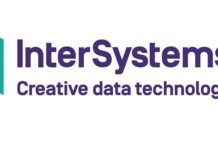As the ChatGPT model takes the online space by storm, the commotion around AI has surged. The model has already passed the US medical licencing exam, has been mentioned in numerous scientific papers, and is also effectively being used in appealing insurance denials, which itself hints at real-world applications for algorithms.
That said, the actual usage of AI based tools across the healthcare spectrum happens to be low. This is despite the many research benefits that one can get out of this technology. In one of the new paper, the researchers have forecasted that the adoption of AI in a broader way can give out savings anywhere between 5% to 10% when it comes to healthcare expenditures. This stands equivalent to a figure of $200bn to $360bn in an entire year. These estimates are completely based on the AI making use of present technologies, which happen to be attainable in the forthcoming 5 years, without compromising access or quality.
As far as hospitals are concerned, the cost savings mostly come from enhanced clinical operations, their safety, and quality, such as identifying untoward events and optimising operating rooms. The advantages match for the physician groups too, which could boost AI for continuity in care such as referral management.
Health insurers can also go on to witness savings from the use cases which go on to improve management of claims such as automating the prior authorization, besides relationship management of healthcare and providers which also includes prevention of readmissions.
On the basis of the AI-driven use cases, private players can go on to save almost 7%–9% of the total cost incurred, which amounts to a whopping amount of $80bn-$110bn in annual savings in the next 5 years. Apart from this, the physician groups may save 3% to 8% of the total cost, which touches a figure of anywhere between $20bn-$60bn per annum in terms of savings.
In addition to the above, the hospitals can also expect savings of 4%–11%, which, as per the report, amounts to roughly $60bn-$120bn every year.
Although there are immense benefits to AI in healthcare, which is also witnessing a surge in funding in the space, the usage of AI by doctors in clinical cases is still erratic. One of the recent studies published in JAMA found a paucity of robust evidence that supported claims that AI was elevating clinical outcomes.
In spite of that, the FDA has been speeding up approvals of medical AI tools and had already authorised more than 520 devices by November last year. Experts are of the opinion that 2023 can be an inflection point when it comes to embracing as there is more evidence around the efficacy of AI in the real-world.

























